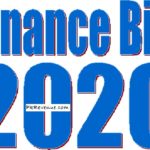KARACHI: The Finance Bill 2020 has proposed significant amendments related to income tax at import stage in Section 148 of Income Tax Ordinance, 2001 as it was described by BDO Pakistan Audit Consultancy and Tax Advisory Firm.
Following are the changes proposed by the Finance Bill, 2020 in Section 148:
148(1): The bill seeks to add expression “in respect of goods classified in Parts I to III of the Twelfth Schedule” in sub-section (1) of the Section 148. The tax advisory firm interprets that earlier rates of advance tax at import stage were classified in the First Schedule now a separate Twelfth Schedule is constituted which specifies goods wise rates.
148(1): The bill seeks to add a new proviso to initiate that the Board [Federal Board of Revenue] may, through a notification in the official Gazette, add a good in any Part or reclassify a good from one Part to another of the Twelfth Schedule. The firm commented that Board [FBR] reserves powers to enter any good in the Twelfth Schedule.
148(7): The Finance Bill seeks to insert the expression “goods on which tax is required to be collected under this section at the rate of 1 percent or 2 percent by an industrial undertaking for its own use” to make tax adjustable. The firm commented that tax at the rate of 1 percent or 2 percent paid by an industrial undertaking for import of goods for its own use shall become adjustable tax.
148(7): The bill seeks to omit the hyphen and clauses “(a), (c), (d). The tax advisory firm commented that the omission results in withdrawal of exemption from advance tax at import stage provided to motor vehicles in CBU condition by manufacturer of motor vehicles and large import houses.
148(8) & 148(8A): The bill seeks to omit sub-section (8) and (8A) of section 148. The firm commented that this will result in end of minimum tax regime for edible oil, packing material and plastic raw material and ships breakers and now tax paid at import stage can be claimed as adjustable tax if industrial undertaking criteria are fulfilled.
148(9): The bill seeks to amend the term “value of goods” by linking it with retail price under the Third Schedule of the Sales Tax Act, 1990, and other than Third Schedule items. The firm commented that for the purpose of collection of advance income tax at import stage, value of goods has been aligned with the enabling provision of the Sales Tax Act 1990, which specifies the value for the purpose of sale tax at import stage.
148A: Tax on local purchase of cooking oil or vegetable ghee by certain persons. The firm commented that earlier this section resulted in manufacture of vegetable ghee or cooking oil to pay 2 percent final tax on local purchase of locally produced edible oil. The Bill seeks to omit this section, which would result such manufacturer and taxing real net income of the taxpayers.


